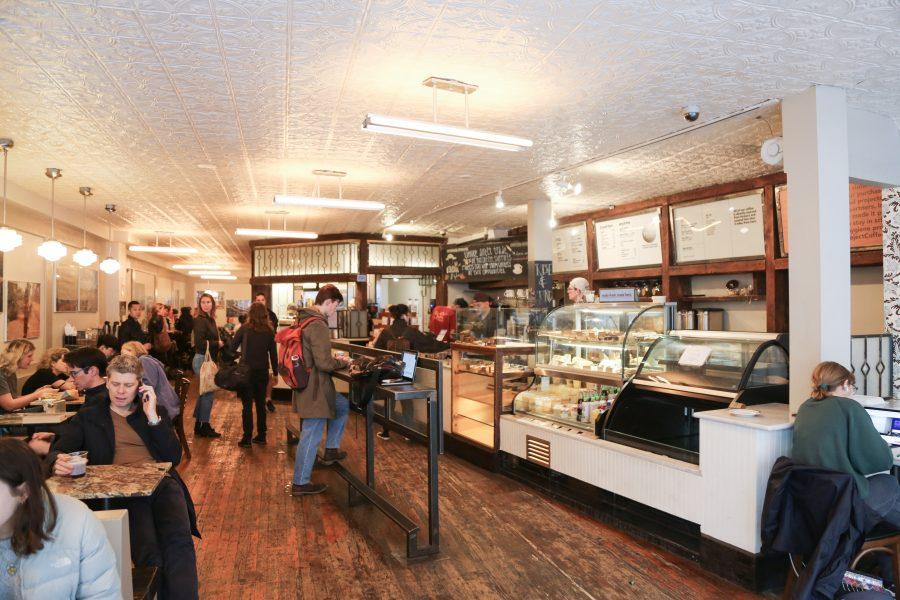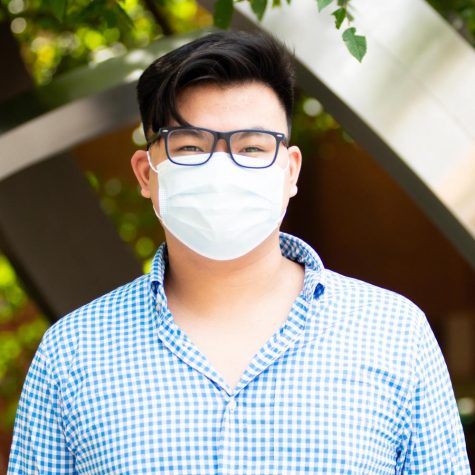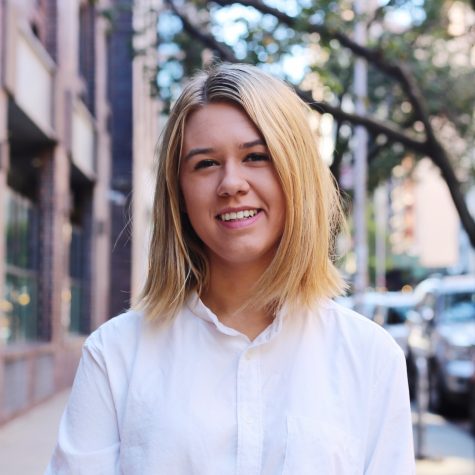The average customer walking into Bell Book & Candle in Greenwich Village will never know that the majority of the ingredients — 60%, according to executive chef John Mooney — used at the restaurant come from the rooftop aeroponic garden, which is a method of gardening that allows plants to grow without soil. Likewise, the average patron in a Think Coffee might be unaware of the many projects that the New York City-based coffee chain has implemented in the communities that it sources its coffee from.
Bell Book & Candle and Think Coffee are just two of a growing number of food establishments in New York City that use sustainable methods to feed their customers.
But it’s not easy being green.
“There’s no easy solution,” Think Coffee Brand Experience director Dylan Schultz said in an interview with WSN. “We’ve had to adapt and change over the years considerably just to try to keep at the point where we are confident we’re doing the best we can.”
Think Coffee’s approach to serving coffee attempts to tackle sustainability from production to disposal. On one end, it sources its coffee directly from communities in Nicaragua, Ethiopia, Mexico and Colombia. On the other end, all its materials — cups, napkins, bags — are compostable and its coffee grounds go to Grounded, a company founded by two NYU students that turns them into cosmetic products.
On the production side of its sustainability initiatives, Think Coffee, which formerly worked with Fair Trade — a nonprofit organization that works with companies to improve the lives of farmers in developing countries through fair pricing — uses its own model for buying coffee beans, called Social Project Coffee. This model is based around direct relationships with the farms and farmers that grow and pick the coffee.
It’s not just about the business interactions to Think Coffee. For example, the chain established a program in Kellensoo, Ethiopia where women can make their own pads since girls were previously forced to miss school for a week every month due to a lack of feminine hygiene products.
“Our focus is, of course, we want the highest quality coffee available,” Schultz said. “But we also want to improve working conditions and improve environmental conditions, improve conditions for the community in any way they see fit, or at least in a specific way that they see fit.”
With all these projects going on simultaneously, it’s hard to imagine someone going into Think Coffee unaware of these initiatives. But Schultz said that two years ago, this would’ve been the norm, and only more recently have consumers begun to hold businesses more accountable for their social projects and sustainability initiatives.
At Bell Book & Candle, Mooney faces a similar situation.
“Awareness has raised tremendously since the inception of this restaurant,” Mooney said. “But there’s a chunk of people that definitely come because they believe in what we do, they like to support it. And then there’s a whole chunk of people in New York that just want to go out for a birthday or an anniversary or a good time or whatever [who] don’t care at all.”
The rooftop aeroponic garden makes it possible for Mooney to source the majority of his ingredients right off his building. “The [vegetables] I grow, and what I don’t grow, I buy local as possible,” Mooney said.
While the menus at Bell Book & Candle point out the rooftop garden, Mooney is of the opinion that caring about sustainability falls on the professionals rather than the consumers.
“As a professional in any industry, you have to be responsible and if you’re consuming something I’m providing, then I want to make sure it’s the best,” he said. “There’s a lot of people out there that use these buzz phrases and trendy terms and all these things that don’t believe in it at all. And I think that’s bullsh-t.”
Like Mooney, Schultz and the owners of Think Coffee aren’t particularly heavy on marketing their sustainability initiatives.
“Honestly we’ve always kind of played it fast and loose,” Schultz said. “We kind of just do our thing, and we don’t like trumpeting it a lot, but we are trying to communicate what we’re doing a little more to our customers.”
Steinhardt junior Ellyson Beyer, a Nutrition and Food Studies major, says she likes that Bell Book & Candle and Think Coffee aren’t heavily marketing the fact that they’re sustainable.
“They don’t need to attract consumers through their sustainability,” Beyer said. “They are both profitable and sustainable and they have consumers in the door anyway. All companies should adopt sustainable practices because even if consumers don’t know about it, they’re making an impact and they’re still going to have loyal customers.”
Her main concern, however, is with waste management. Beyer says she’s bothered by the waste she and her roommate produce, especially because they don’t have a responsible way to dispose of it.
“We just have trash,” Beyer said. “We don’t have compost or anything like that.”
While sustainability isn’t something that Beyer considers when she goes out to eat, it’s something she thinks about in other aspects of her life. She recounted her experience in Cape Town, South Africa last summer during a drought. While she was there, showers were limited to two to five minutes.
“That was just really eye-opening for me because when you’re in an environment where everyone is being sustainable, it’s not that hard,” Beyer said. “It just becomes the norm.”
In an effort to encourage more sustainability in the lives of its customers, Think Coffee is trying to increase awareness of its practices.
“People just don’t really know what we’re up to and they don’t know how Social Project Coffee is different than other types of coffee sort of scene,” Schultz said.
Beyer believes that Think Coffee can do this by working more closely with NYU. She talked about her own field trip to a coffee shop in Brooklyn called Devoción, where she learned about sustainable sourcing practices. She said Think Coffee could drastically increase awareness by reaching out to professors and offering interactive tours.
“All of a sudden you’re educating students who are going to spread the word about that and, I think, become loyal advocates of their sustainability practices,” Beyer said. Ultimately, she thinks that the best way to raise awareness is to show, not tell.
Whether or not Mooney or the owners of Think Coffee push more of their customers toward awareness seems almost immaterial. For them, what really matters is the intent behind the practices, the belief that what they’re doing is important.
“We just didn’t want to talk about it,” Schultz said. “We just wanted to do it.”
A version of this article appears in the Monday, May 6, 2019, print edition. Email Paul Kim at [email protected].

























































































































































